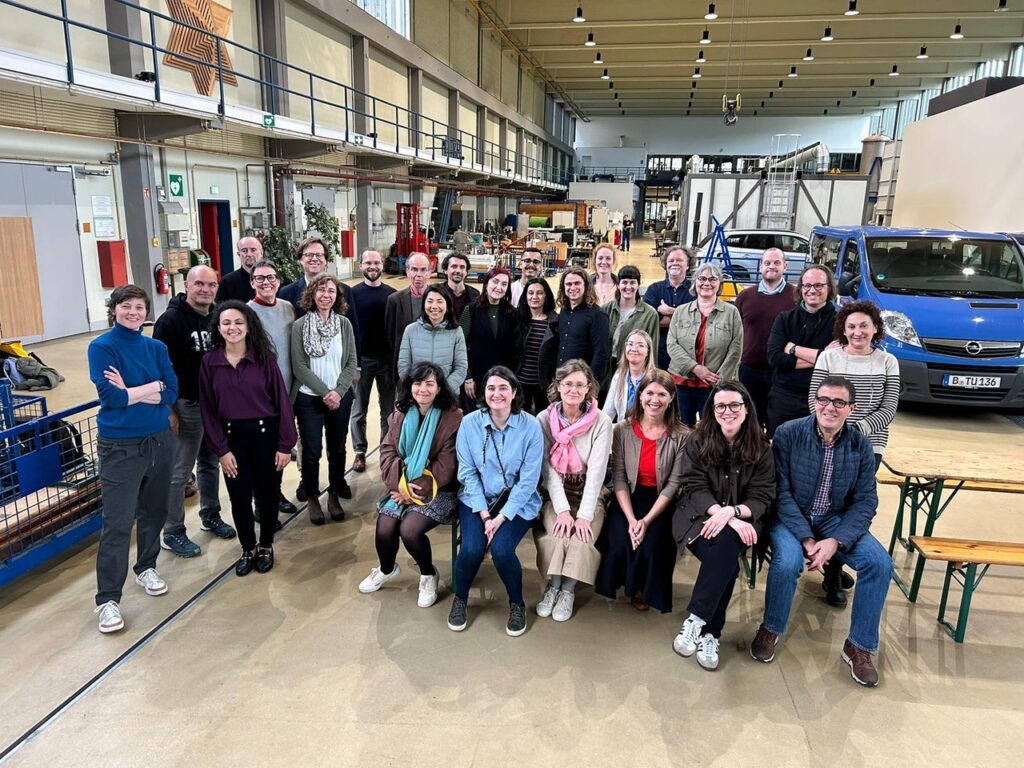Engineering Education needs to address both current and future economic, social and environmental challenges. An understanding of ethics, ethical decision making and responsibilities becomes a necessary tool for the global engineer, which helps support his/her day-to-day activities, as well as international policy making.
Objectives
- Establish a network of educators and practicing engineers who want to develop ethics education
- Stimulate discussion, opinion formation and decision making about the needs and opportunities for ethics in the engineering curricula
- Share experiences, practices, developments and teaching resources in ethics and ethical leadership education
Activities
- Organisation of themed workshops at the SEFI Annual Conference
- Organisation of themed workshops, seminars and a two day school during the whole year
- Joint research and publications in the field of Engineering Ethics Education, such as the Handbook of Engineering Ethics Education Research, and an international comparative research study on ethics in accreditation
- Editing theSEFI Ethics Special Interest Group Newsletter and thematic opinion pieces
- Facilitating the development of international research groups on specific themes of engineering ethics education: accreditation, emotions. Feel welcome to contact the co-chairs to propose new thematic projects
- Capacity building in engineering ethics education, with a current focus on Eastern Europe
SEFI Ethics Editorials
Generative AI and the role of uncertainty in classroom assessment – Andrew Katz, Virginia Tech, USA.
AI and education for global justice – Vlasta Sikimić (TU Eindhoven, The Netherlands)
The choreography of virtues for living with AI – Constantin Vică (University of Bucharest, Romania)
Benchmarking AI tools and assessing integrity – Sasha Nikolic (University of Wollongong, Australia) and Scott Daniel (University of Technology Sydney, Australia)
How to counter the tech titans’ futuristic narratives about AI? – Maximilian Rossmann (Maastricht University, The Netherlands)
Discussing “plausible nonsense” and “carbon footprint” in engineering ethics – Cécile Hardebolle (EPFL, Switzerland) and Vivek Ramachandran (UCL, UK)
The Human-Centered AI Masters programme – Mihály Héder (Budapest University of Technology and Economics, Hungary)
Data is Never biased, and AI is Never Unethical – Nael Barakat (University of Texas, US)
Engineering Ethics Education Research: The birth of a discipline –Gunter Bombaerts and Diana Martin, TU Eindhoven, The Netherlands.
The balance of competing purposes in engineering higher education – Alaa Abdalla, Virginia Tech, The USA.
Students’ Reflections on Education in Uncertain Times – Technology, AI, and Engineering Ethics – Ashish Hingle, George Mason University, The USA.
Demarcating Ethical Behaviors in Engineering – Athena Lin, Purdue University, The USA.
Preparing Future Engineers: Navigating Ethical Dilemmas in the Age of Climate Change, AI, and Digital Privacy – Brooks M. Leftwich, Purdue University, West Lafayette, Indiana, USA.
Collaborative Learning Experiences and Gender in Engineering Education – Sandra Cruz, TU Dublin, Ireland.
The inevitability of philosophy in sustainability education – Thijs Loonstra, Wageningen University, The Netherlands.
The experiences and career choices of female engineering undergraduate students at Chinese universities: an intersectional study of gender and socioeconomic status – Zeyi Liu, UCL, The Uk.
Dialogic Praxis to love the world and assume responsibility to save it – Patric Wallin, Norwegian University of Science and Technology, Norway.
We become what we repeatedly do: The argument for ethics in an integrated curriculum – John Mitchell, Centre for Engineering Education, University College London, The UK.
Rewarding collective progress – Fostering learning communities within the engineering curriculum – Rubaina Khan & James Slotta, Ontario Institute for Studies in Education, University of Toronto.
Change in Engineering Education: Keeping things afloat or building a better boat in a choppy uncontrollable sea – Jenni Case, Virginia Tech, The US.
Change in Engineering Education – Faris Tarlochan, Qatar University, Qatar.
Reframing Racial Equity in Engineering Education – Diana A. Chen, Susan M. Lord, G. D. Hoople, Department of Integrated Engineering, University of San Diego, USA; Joel Alejandro Mejia, Department of Biomedical and Chemical Engineering and Department of Bicultural-Bilingual Studies, University of Texas at San Antonio, USA.
Insights for engineering ethics education system change – Gunter Bombaerts and Diana A. Martin
Addressing tensions between student learning and community benefits in service-learning – Adetoun Yeaman (Wake Forest University, USA) and Linjue Wang (University of Michigan, USA)
Student organizations as critical learning sites for ethical development of engineering students – Luan M. Nguyen (Iowa State University, The US)
The importance of socialisation and motivation in immersive work-based learning models in engineering education – Jeffrey Buckley (Technological University of the Shannon, Ireland) and Jason Power (University of Limerick, Ireland)
AREA (Anticipation, Reflection, Engagement and Action) framework is used to connect responsible innovation and challenge-based learning at UCL – Kate Roach and Tilley Emanuela (University College London, The UK)
Real Challenges for Real Responsible Engineers – On Challenge-based Learning for Engineering Ethics Education – Christian Herzog (University of Lübeck, Germany)
Challenge-Based Learning As A Tool For Socially Oriented Education, A Lifelong Learning Approach – Jorge Membrillo-Hernández, Genaro Zavala and Jin Michael Fung (Tecnologico de Monterrey, Mexico)
Implementing challenge-based learning for university students, technicians, elementary and middle school students in the Biorefineries and Renewable Energies Supported by ICT project (BERSTIC) – Ramón Fernando Colmenares-Quintero and Sergio Barbosa-Granados (Universidad Cooperativa de Colombia, Colombia)
The Green Competence Sustainability Competence Framework stimulates engineering ethics – Alfredo Soeiro (AECEF, Portugal)
Video on engineering ethics education in an interdisciplinary challenge-based learning course – Gunter Bombaerts, Adam Watkins and Regina Lüttge (TU Eindhoven, the Netherlands)
Sustainability should become our new religion – Aleksandra Evtimova and Simona Eichkorn (TU Eindhoven, the Netherlands)
Advances towards Embedding Sustainable Development in Engineering Degrees, a case at the University of the Basque Country – Zaloa Aginako, Teresa Guraya (School of Engineering of Bilbao, Spain)
Students need non-technical competences and holistic learning for sustainability success – Una Beagon (TU Dublin, Ireland) and Klara Kövesi (ENSTA Bretagne, France)
Siemens Skills for Sustainability Network – How can industry play their part in developing engineering students with skills for sustainability? – Jennifer Bradford, Siemens
Sustainability as a university top priority starts with students making it their personal priority – Fionn Rogan (University College Cork, Ireland)
What can mindfulness offer to engineering education for sustainable development? – Ana M. Gómez Olmedo (ESIC University)
Understanding students’ engament and agentic behavior towards sustainability in a PBL environment –Aida Guerra, Aalborg University, Denmark
From apathy to empathy: A journey in understating students’ engagement in issues of sustainability– Natalie Wint (Swansea University, UK)
Navigating the complex landscape of sustainable engineering design: Skills and mindsets over methods and tools– Jordan Nickel, Rob Duimering, Ada Hurst (Department of Management Sciences, University of Waterloo, Ontario, Canada)
Teachers’ pedagogical support for sustainability integration – Paula Schönach, Meeri Karvinen, Noora Jaakkola (Aalto University, Finland)
How Do You Create Passion And Potential To Contribute To A Safe And Just World? – Dr Jonathan Truslove, Education Lead, Engineers Without Borders UK
Redefining the “dominated” power position in global engineering and in globalization studies in engineering education– Esther Matemba (Curtin University, Australia)
More Intercultural Ethics of Technology– Alessio Gerola (Wageningen University, The Netherlands )
Broadening Western engineering ethics with religious and cultural values from different parts of the World – Balamuralithara Balakrishnan (Sultan Idris Education University, Malaysia)
Engineering Ethics Education: An Indian Perspective– Satya Sundar Sethy (Associate Professor of Philosophy, Indian Institute of Technology Madras, Chennai, India)
Ethics in Engineering Education. Case study of mining in South Africa– Malebogo Ngoepe, Corrinne Shaw, Kate le Roux and Brandon Collier-Reed (University of Cape Town, South Africa)
Developing students’ understanding of context through a humanities-informed engineering course – Kirsten A. Davis, Siddhant S. Joshi, Lori Czerwionka, Gabriel Rios Rojas, Francisco J. Montalvo Purdue University, USA
Engineering Education and Practice: Assessing the State of the Art – Rana Tallal Javed (Ibtidah Solutions and University of Oslo, Norway), Junaid Qadir (Qatar University, Doha, Qatar)
Urban water provision; Engineering considerations and Ethical [Framings,] – Edmond Byrne, University College Cork, Ireland
Rethinking Success and Failure in Community-Oriented Engineering – Ben Pauli, Kettering University, USA
TEK and the Challenge of a “Broad” Water Ethics – Ricki Levi, Jindal School of Environment and Sustainability, O.P. Jindal Global University, Sonipat, India; Daniel Mishori, Porter School of the Environment and Earth Sciences, Tel Aviv University, Israel
Why Engineers should care about Water Ethics– Ingrid Leman Stefanovic, Professor Emerita, University of Toronto, Canada
A Water Ethics Framework for Engineers – David Groenfeldt, Director Water-Culture Institute & University of New Mexico in the US
Water Cooperation Quotient- An Engineering Perspective – Ilmas Futehally, Executive Director Strategic Foresight Group, Mumbai, India
Creating space for ethical discussion in environmental engineering education – Sarah Cotterill, University College Dublin, Ireland
Engineering Ethics in Romania: an anemia diagnosis – Mircea Toboșaru, University Politehnica of Bucharest, Department of Teacher Education and Social Sciences Engineering Ethics in Romania
Engineering ethics education: insights from Spain and Portugal – Luis Adriano Oliveira, Ester Gimenez Carbó and Alfredo Soeiro
Ethics for Comprehensive Engineers: A Retrospective and Prospective Sketch of TU Delft’s Engineering Ethics Education– Neelke Doorn, Lavinia Marin, Sabine Roeser, Taylor Stone, Janna van Grunsven
There is no such thing as neutral engineering ethics education Gunter Bombaerts and Diana Martin
Finding spaces for humility and different perspectives in engineering community engagement Patricia Xavier
Why social justice in engineering? Msawenkosi Mkhize
Teaching and practicing emancipatory engineering: lessons from Brazilian Popular EngineeringCristiano Cordeiro Cruz
Cultivating Student Concern for Public Well-Being: An Ongoing Challenge for EducatorsJason Borenstein
Value Sensitive Design as a participative and nudging instrument in and for Engineering Ethics Education Gunter Bombaerts and Diana Martin
Responsible Engineering, Design and Innovation Rafael Calvo
The beginning of our value sensitive design journey Dylan Cawthorne
Envision values, envision value sensitive design Steven Umbrello and Daisy Yoo
An open resource on teaching for values at design and engineering programs Elisabeth Nilsson and Anne-Marie Hansen
Finding values in the dark Taylor Stone
Critical Thinking at the Foundation for Engineering Ethics Education Katta Spiel
“Let us not be afraid to ask bold and potentially transformative questions!” Jennifer Amos and Gabriel Burke
A Systematic Review on Emotion in Engineering Ethics Education Madeline Polmear
More emotional engagement in richer learning environments will elevate awareness and understanding of ethical issues Yeşim Korkut
Decolonizing engineering education: a possible path towards a more collective, caring, and empathetic field Giselle Guanes
Experiences of an online conflict management course to support Problem and Project-Based Learning Pia Bøgelund
Emotions and STEM Education? But why? Alberto Bellocchi
The medium is the message, also in Engineering Ethics Education
Short Fiction elicits the important messages in Engineering Ethics Education
Engineering Ethics as Storylines: Emulating the moral imperative of Aboriginal stories.
Online Ethics Center: A key resource for ethics education in engineering and science
Holistic engineering education for sustainability natives
What have we lost and gained with lecturing online for the engineering ethics classes?
The ethical dimension of online technologies and online education
Plea for more nuanced use of engineering ethics case studies
What are your underlying assumptions in having students go through your cases?
Centring equity in engineering ethics case study instruction
Making cases more concrete and familiar: A Japanese example of a case on endemic disease for students studying beside the location
The role of top-down and bottom-up efforts for broadening engineering ethics education
Successfully Pivoting to an Online Process of Engineering Programme Accreditation
What we assess for accreditation and what we teach need not be completely aligned
Engineering ethics and the professionalization of engineering in France: a personal journey


